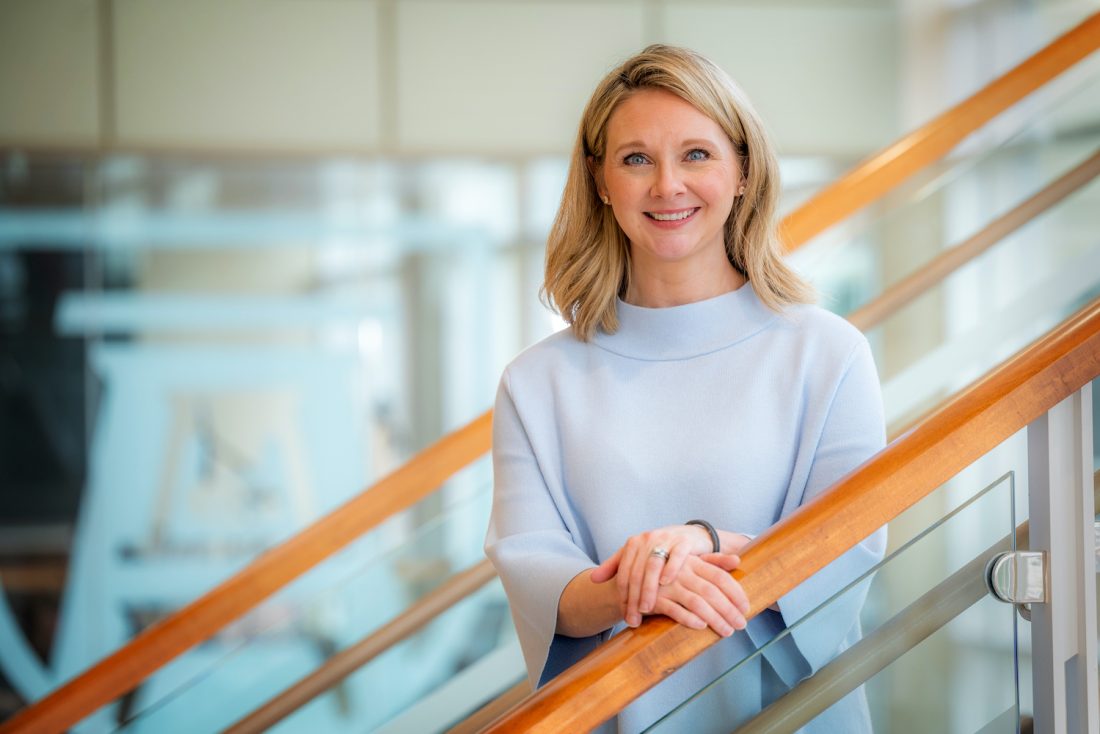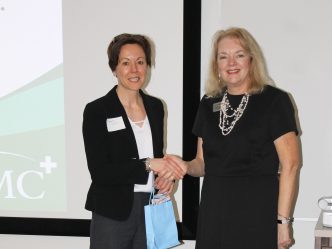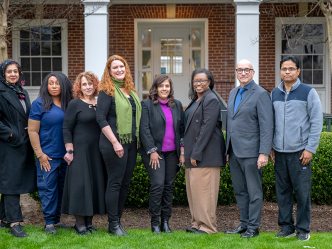New teacher data suggested that between 2018 and 2020, Georgia hired 1,235 new special education teachers and lost approximately the same number of special education teachers each year. Therefore, the gap in the number of vacancies and the number of hires did not narrow.
Even though Georgia is retaining 80% of special education teachers, data shows the state continues to have a special education teacher shortage of about 19% each year.
“Special education is definitely a high-need area,” said Jessica Simpson, PhD, assistant professor and program coordinator for special education at Augusta University. “All of the school districts around our area are currently looking for special ed teachers.”
To help get more special education teachers in the classrooms, Augusta University’s College of Education and Human Development is offering a new teaching pathway for paraprofessionals that will begin this fall.
The university currently offers a Master of Arts in Teaching (MAT) in special education that is fully online, but this new pathway will also offer a bachelor’s degree in education for special education that will specifically help paraprofessionals become special education teachers while still working in the classroom, Simpson said.
“We’re looking to tap into that market and get them the certification they need in special education so they can serve the teaching capacity in a different way,” Simpson said, adding the online classes are convenient for full-time paraprofessionals. “And their field experience is built into their place of employment. So that really works out well for the paraprofessionals because they are able to complete all their hours where they are in their current schools.”
“Special education is definitely a high-need area. All of the school districts around our area are currently looking for special ed teachers.”
Jessica Simpson, PhD, assistant professor and program coordinator for special education at Augusta University
Tammy Sweat, a special education teacher at Greenbrier High School, is a recent graduate of the bachelor’s degree in education for special education at Augusta University and appreciated the fact that she could take classes online.
“Prior to becoming a special education teacher, I was a special education paraprofessional and I had wanted to go back to school, but couldn’t because I had to work,” Sweat said. “And so, with the program at AU, they offered me the opportunity to take my classes online, which enabled me to live out my dream. At AU, you get the support that you need in order to be successful.”
Earlier this year, Georgia Gov. Brian Kemp and the state legislature approved $15 million in grant funds to help paraprofessionals pay for the cost of becoming full-fledged, certified teachers.
“Teachers need reinforcements. That’s why I’m furthering the teacher workforce pipeline measures we put into place during my first term through certification grants that will help paraprofessionals become teachers,” Kemp said during his 2023 State of the State address in January. “With this one investment, we will add close to 5,000 new teachers to our education workforce. These changes will make our classrooms more successful.”
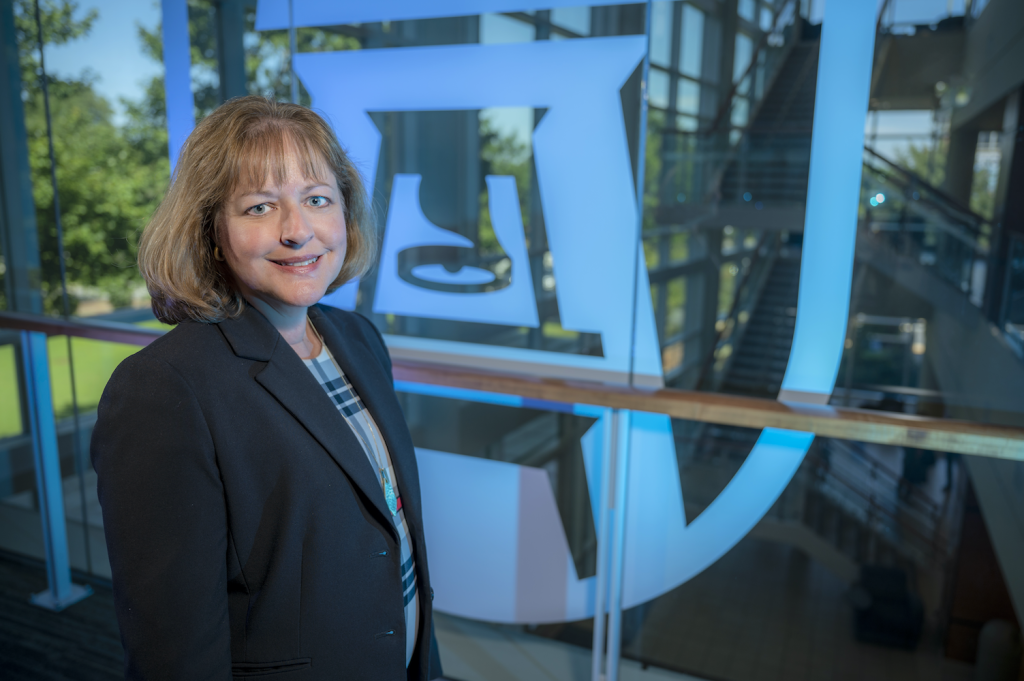
Judi Wilson, EdD, the dean of the College of Education and Human Development at Augusta University, is grateful for the governor’s attention to the growing need for special education teachers throughout Georgia.
“There is a national shortage of SPED teachers. We are hearing that constantly,” Wilson said. “There is a real push in our local community around this new pathway and that’s why we responded as quickly as we did.”
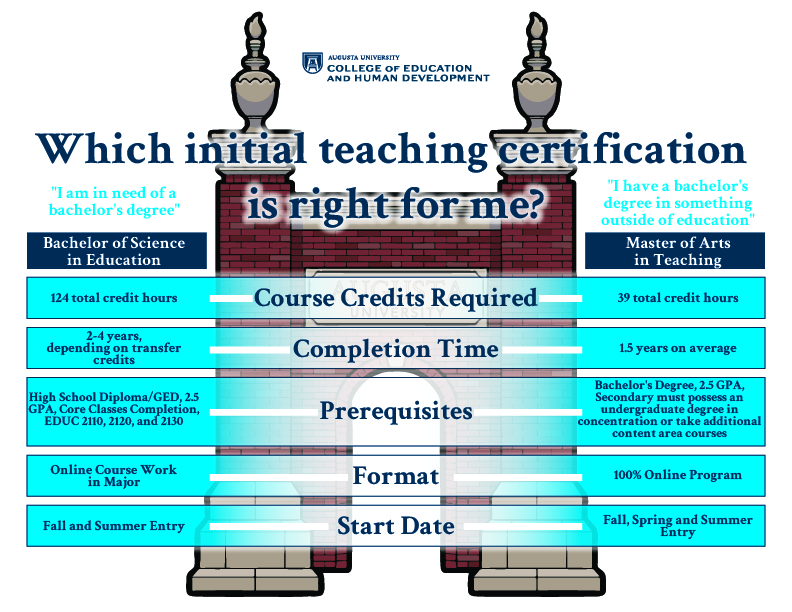
Paraprofessionals interested in applying to Augusta University’s pathway program also have a number of scholarship options available if they qualify, Wilson said.
“I have more scholarships for special education than anything in this entire college. I honestly cannot give the money away,” Wilson said. “For example, we’ve got the Frank McMillan Scholarship for $200,000. It draws down about 4% a year, so we are talking about $8,000 that we are able to give the students. We usually give about eight $1,000 scholarships to eight students, so $500 in the fall and $500 in the spring to each student. And that scholarship can only go to future special education teachers, so we definitely have a lot of scholarship money that can help.”
Jessica Rodriguez, an admissions recruiter for the College of Education and Human Development, said applying for the scholarships can easily be done online.
“There are a ton of scholarships offered at Augusta University,” Rodriguez said. “What I would recommend you do is once you are admitted into the institution, go into our AU scholarship portal. Apply for as many scholarships as you can, because scholarships do have different requirements ranging from GPA to what program you’re in, to even if you’re hired in a county. We do have partnerships with counties and they offer scholarships as well.”
Augusta University also offers one of the lowest tuitions in the state, Simpson said. Based on four semesters at nine credit hours each, Augusta University’s 2022-2023 tuition rate was $8,280 compared to Kennesaw State University’s tuition of $10,656, University of Georgia’s tuition of $12,068 and Georgia State University’s tuition of $14,328.
“Clearly, we have one of the lowest tuition rates in the state of Georgia, which is exciting,” Simpson said. “And many districts are offering financial incentives for sign-on bonuses for future special ed teachers. In addition, the employment rate of our graduates is 100%. Often our student teachers have offers for employment before they even finish the program. Sometimes it is multiple offers, which gives them a lot of flexibility in their choice of placement.”
“I have more scholarships for special education than anything in this entire college. I honestly cannot give the money away.”
Judi Wilson, EdD, dean of the College of Education and Human Development at Augusta University
Augusta University graduates finish with a degree in special education and a license in special education general curriculum for pre-K through 12th grade. In addition, they have a content certification, which also gives them flexibility for their future job, Simpson said.
“Our aim for this new pathway for paraprofessionals is to help this be accessible for all students across the state of Georgia,” Simpson said. “We are really excited to get started and roll this out in the fall of 2023.”
As a current special education teacher in Columbia County, Sweat said she couldn’t imagine a better career choice.
“My students are what makes me want to come to work daily because they depend on me being here. And it makes me want to be here, to help them be successful,” she said. “I love it. I wouldn’t want to be anywhere else.”
 Augusta University
Augusta University
